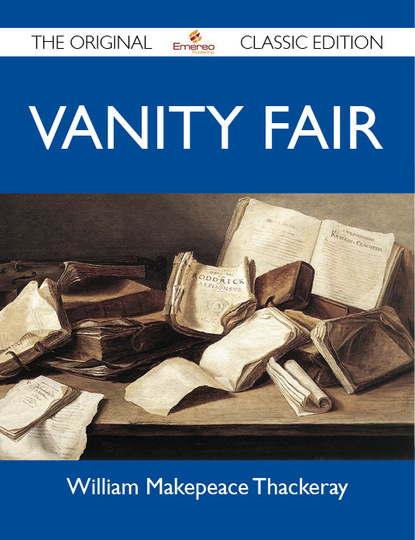
Vanity Fair - The Original Classic Edition скачать fb2
Thackeray William - Vanity Fair - The Original Classic Edition краткое содержание
Greed, gold-digging and deception sit at the heart of Vanity Fair. Its no joke that its subtitled a novel without a hero – William Makepeace Thackeray mercilessly skewered the pretentions and flaws of the upper class all throughout it. The result is a gloriously witty social satire. <p> It opens with two young women departing from a ladies academy: dull, sweet Amelia (rich) and fiery sharp-witted Rebecca (poor). Becky Sharp is a relentless social climber, and her first effort to rise above her station is by trying to get Amelias brother to marry her – an effort thwarted by Amelias fiancee. So instead she gets married to another familys second son, Rawdon Crawley. <p> Unfortunately, both young couples quickly get disinherited and George is killed. But Becky is determined to live the good life she has worked and married for – she obtains jewels and money from admiring gentlemen, disrupting her marriage. But a little thing like a tarnished reputation isnt enough to keep Becky down… <p> Vanity Fair is actually a lot more complex than that, with dozens of little subplots and complicated character relationships. Reading it a few times is necessary to really absorb all of it, since it is not just a look at the two women in the middle of the book, but at the upper (and sometimes lower) social strata of the nineteenth century. <p> The main flaw of the book is perhaps that it sprawls too much – theres always a lot of stuff going on, not to mention a huge cast of characters, and Thackeray sometimes drops the ball when it comes to the supporting characters and their little plots. It takes a lot of patience to absorb all of this. However… its worth it. <p> Like most nineteenth-century writers, Thackeray had a very dense, formal writing style – but once you get used to it, his writing becomes insanely funny. Witticisms and quips litter the pages, even if you dont pick them all up at once. At first Thackeray seems incredibly cynical (Beckys little schemes almost always pay off), but taken as a social satire, its easier to understand why he was so cynical about the society of the time. <p> Becky Sharp is the quintessential anti-heroine – shes very greedy and cold, yet shes also so smart and determined that its hard not to have a grudging liking for her. Certainly life hasnt been fair for her. Next to Becky, a goody-goody character like Amelia is pretty boring, and even the unsubtle George cant measure up to Becky. <p> To sum up Vanity Fair: think a period soap opera with a heavy dose of social commentary. In other words, it doesnt get much better than this, Thackerays masterpiece.
Чтобы оставить свою оценку и/или комментарий, Вам нужно войти под своей учетной записью или зарегистрироваться




